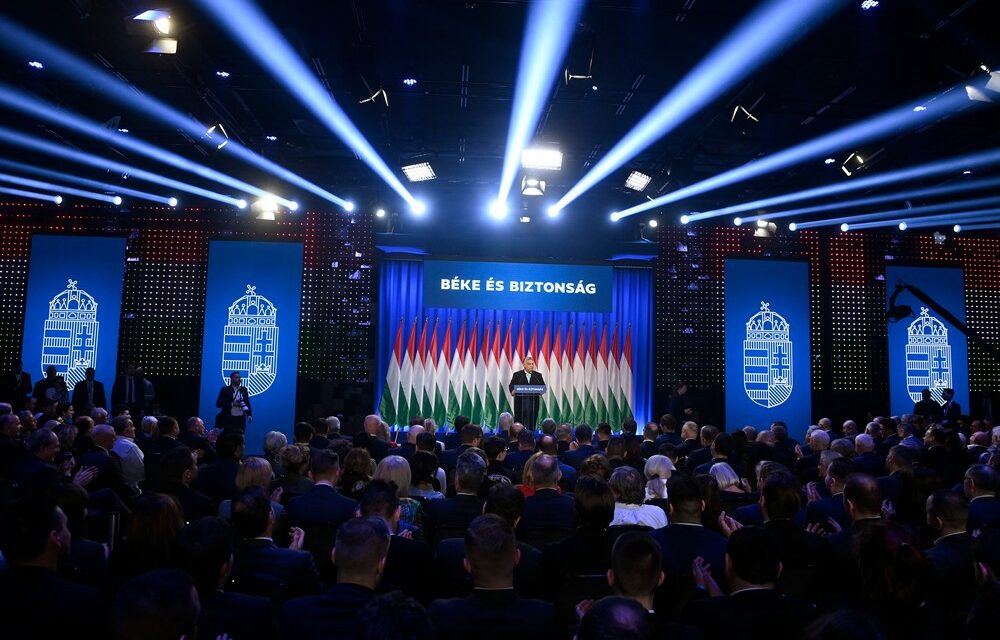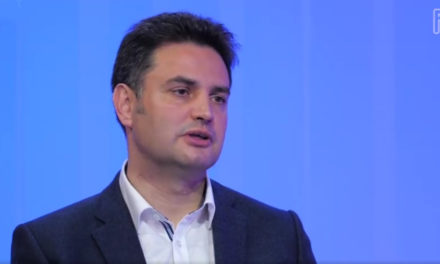No one in Europe is so autonomous and no one is so free to say this; this is practically the privilege of the Hungarian Prime Minister - said political scientist Tamás Lánczi in Kossuth radio's Sunday newspaper program. According to the analyst, there are others who think so, but they simply cannot bring themselves to say this obvious truth because they are not strong enough politically.
Analyzing the prime minister's annual evaluation on Saturday, he said that Viktor Orbán spoke strongly about the higher goal and opportunity of standing on the side of peace in the war in Ukraine , and not on one or the other side.
So it possible to save lives and save the country primarily with an armistice and then with peace.
"The Prime Minister talked about two important things that he considers to be the most serious and threatening threats. One is the escalation of the war, which has reached the stage where another belligerent may enter the war at any time, either in the form of voluntary peacekeepers or in the form of increased arms shipments. And the other is the economic dangers, inflation," stated Tamás Lánczi.
Tamás Lánczi said that no one in Europe is so autonomous and no one is so free to say this; this is practically the privilege of the Hungarian Prime Minister.
According to the analyst, there are others who think so, but they simply cannot bring themselves to say this obvious truth because they are not strong enough politically.
As he said, they are trying to push us into the role of "if we were to participate on the side of Russia, which is obviously an extremely unpleasant and dishonorable role. Along these lines, they are trying to alienate us from the Western world, to simply exclude us from certain Western forums".
He added: Viktor Orbán made it clear that he supports NATO membership, but opposes the attempt to turn NATO into a "weapon of war".
NATO is a defensive alliance, not an offensive one.
If it operates as a defense alliance, Hungary is a member and a good ally, but it wants and will stay out of any offensive operations, "if it depends on the prime minister's intentions," the political scientist emphasized.
He believed that in the future, we have to take into account "the traditional pressure" from certain products of the Western European press, which will "continually give us a bad name".
We can also expect pressure that apparently has nothing to do with the war: for example, they say that there is no freedom of the press in Hungary, and there is a problem with the rule of law - indicated Tamás Lánczi, who says that we must prepare for these developments.
"Let's not forget, there was an election here last year, in which Western interest groups pumped nearly four billion HUF dollars into the opposition, in the hope that they would be able to achieve a favorable political change in Hungary. Observing international experience, we can also see that there are even harsher tools with which they can interfere in the internal politics of a country the size of Hungary," Tamás Lánczi listed.
The expert sees that the prime minister has no illusions, he cannot count on the Hungarian opposition.
"The Hungarian opposition says what they want to hear from the West. In the West, they want to hear that the Hungarian opposition is supporting the war, and that the Hungarian opposition will do the same, that the dollars sent to Hungary can be served here. The opposition obviously perceives that the vast majority of the Hungarian population is on the side of peace, but they still say those sentences that make it clear that the Hungarian opposition is fundamentally pro-war," said Tamás Lánczi .
According to the political scientist, it was clear from the annual evaluation that the government is not giving in to the strategic goals – full employment, support for families – despite the difficult economic situation. The middle class, in the broadest sense, "can't be hurt," he said.
At the annual evaluation, it was also said that pensioners are another important group to be protected: the government will maintain the results it has achieved in their favor thanks to the economic policy of the last thirteen years, Tamás Lánczi stated.
MTI
Front page image: Prime Minister Viktor Orbán gives his annual review speech in the Várkert Bazaar on February 18, 2023. MTI/Koszticsák Solid












